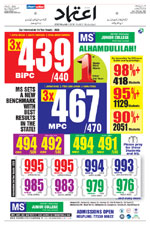Maldives election: Opposition won, says foreign ministry
Mon 24 Sep 2018, 13:10:24
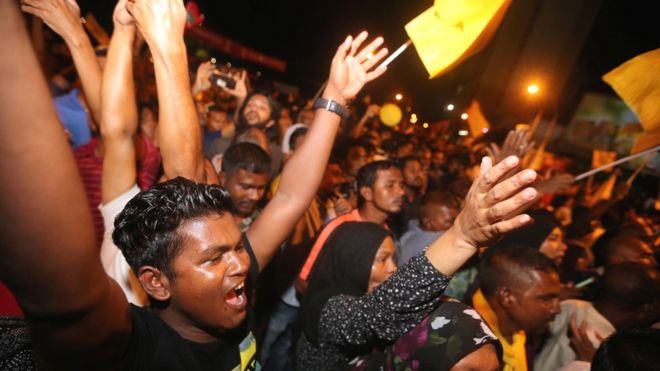
Opposition candidate Ibrahim Mohamed Solih has won the Maldives' presidential election, the country's foreign ministry has announced.
He took 134,616 votes to unexpectedly beat incumbent President Abdulla Yameen, who received 96,132, provisional results showed.
Mr Yameen, who has been accused of crushing dissent in the archipelago, is yet to admit defeat.
The US and India have welcomed the result.
Official results will be released by 30 September but supporters of Mr Solih have taken to the streets in celebration.
He has called on President Yameen to "accept the will of the people".
"The message is loud and clear. The people of Maldives want change, peace and justice," Mr Solih, widely known as Ibu, told reporters in the capital, Male.
President Yameen had been widely expected to win another term in office.
Many of his rivals are in jail and the US and European Union had threatened sanctions before the vote if the democratic situation did not improve.
Some observers had believed the election was rigged in his favour.
Outside the main opposition campaign centre in Male, hundreds of people gathered overnight to celebrate, chanting "Ibu, Ibu, Ibu".
Exiled ex-President Mohamed Nasheed, who was ousted by Mr Yameen in 2012, said on Twitter that Mr Solih had done "an extremely good service" to the people of Maldives.
Polls opened at 08:00 (03:00 GMT) on Sunday, and closed three hours later than expected, at 19:00, due to long queues.
What's the situation in the Maldives?
The Maldives is made up of 26 coral atolls and 1,192 islands. More than 400,000 people live there but its future hangs in the balance due to climate change. Tourism is a vital part of its economy.
The archipelago has been gripped by political upheaval in recent years. In February the Supreme Court quashed the convictions of nine opposition figures, among them Mr Nasheed.
But after President Yameen declared a state of emergency and ordered the arrest of two judges, the court reversed its decision.
The move was seen as a sign that Mr Yameen would not tolerate any challenge to his rule and sparked criticism from
Washington, London and New Delhi.
Washington, London and New Delhi.
Some in India, meanwhile, called for an intervention in a small, neighbouring country once seen as firmly within its sphere of influence. Mr Nasheed also appealed for Indian military intervention.
What role has China played in the Maldives?
As part of Beijing's push to gain strategic influence and carve out new trading routes in the Indian Ocean and beyond, it has lent billions for huge infrastructure projects in Pakistan and Sri Lanka, and operates key ports in those countries, to the chagrin of India.
Under Mr Yameen, the Maldives has also welcomed Chinese money for major projects and signed a free trade agreement. More tourists from China now visit the Maldives than from any other country.
Analysts say that Beijing fears any change in government that could affect its interests, while India is concerned about Mr Yameen's cosy ties with its regional rival.
"India sees it all in a very securitised sense that here are all these Chinese-backed ports around it," said Gareth Price, a South Asia expert at the think-tank Chatham House, referring to Pakistan and Sri Lanka.
Delhi thus sees China's lavishing of loans on the Maldives as part of a wider strategic ambition to secure another foothold in the Indian Ocean, he added.
Was it a fair election?
International monitors, including from the EU and UN, did not send teams to monitor the election, fearing their presence would appear to condone Mr Yameen's re-election. Others said they could not get visas in time.
On Saturday, police officers searched the opposition Maldivian Democratic Party office in Male without a warrant, the party said. A police spokesperson confirmed the raid to the BBC, without providing further details.
But the election commission's spokesman said allegations of possible voter fraud "don't have any basis in reality".
Mr Yameen has shrugged off accusations of authoritarianism, saying during the campaign: "No-one will come to greet me and shake my hand, if there is tyranny."
His half-brother, Maumoon Abdul Gayoom, ran the country autocratically for three decades until the archipelago's first-ever democratic vote in 2008, which was won by Mr Nasheed. Mr Gayoom was jailed in June.
No Comments For This Post, Be first to write a Comment.
Most viewed from International
Most viewed from World
AIMIM News
Latest Urdu News
Most Viewed
May 26, 2020
Do you think Canada-India relations will improve under New PM Mark Carney?
Latest Videos View All
Like Us
Home
About Us
Advertise With Us
All Polls
Epaper Archives
Privacy Policy
Contact Us
Download Etemaad App
© 2025 Etemaad Daily News, All Rights Reserved.

.jpg)
.jpg)
.jpg)
.jpg)
.jpg)






.jpg)
.jpg)
.jpg)
.jpg)
.jpg)
.jpg)
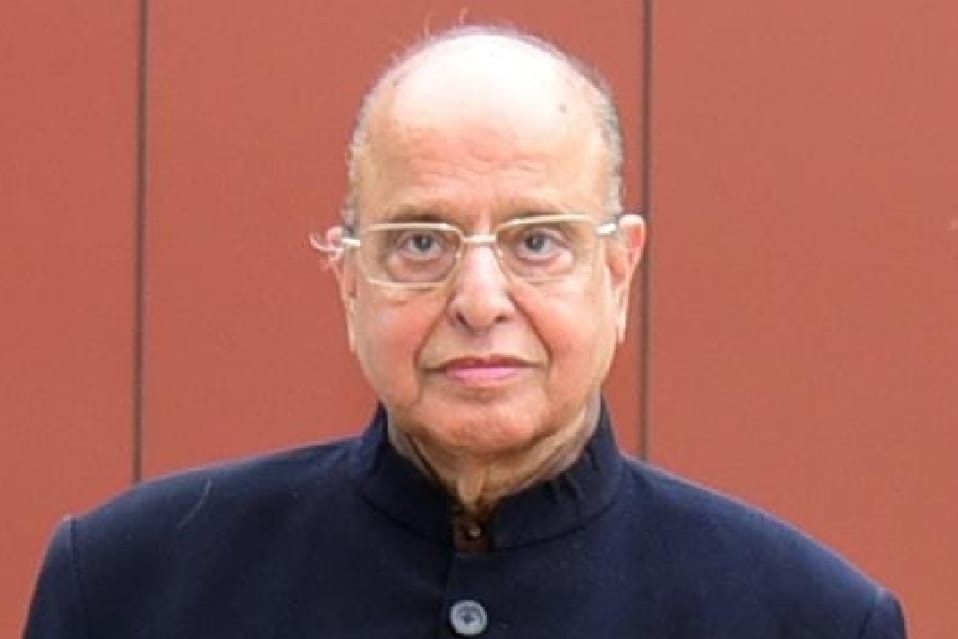
.jpg)
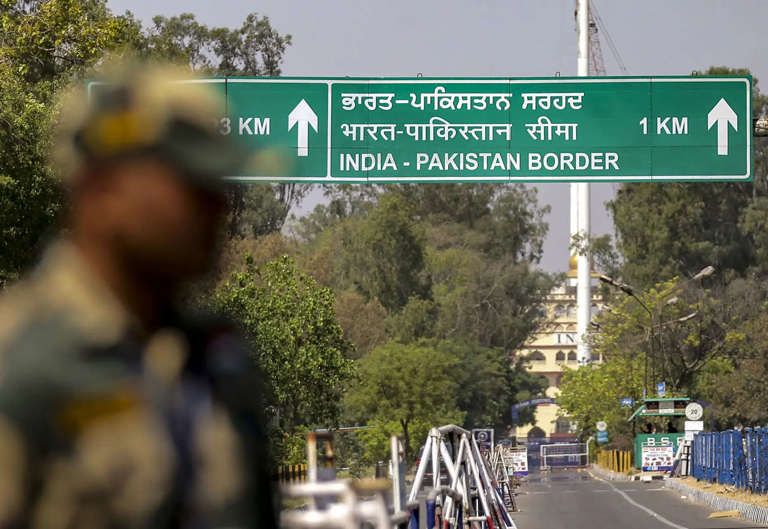
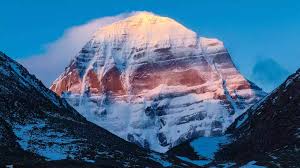
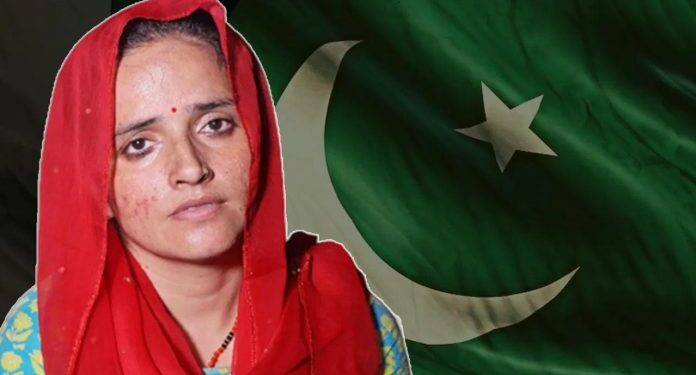
.jpg)
.jpg)

